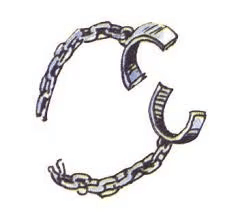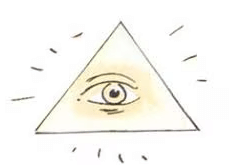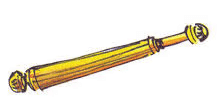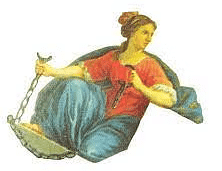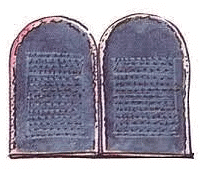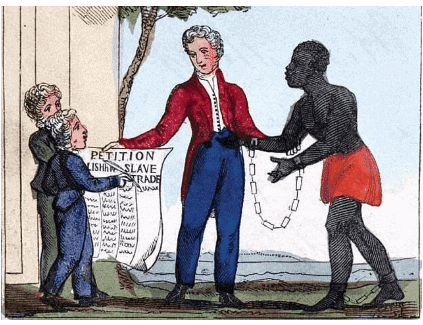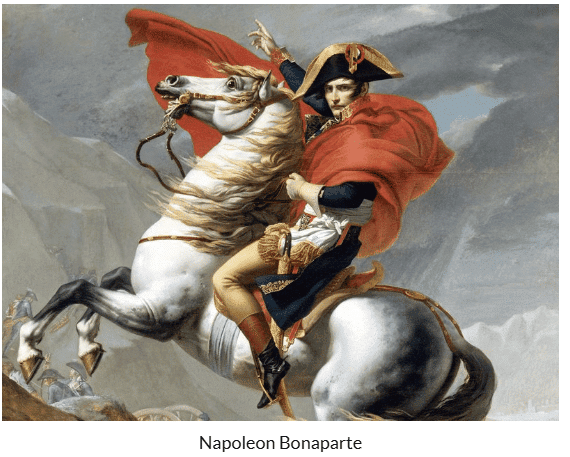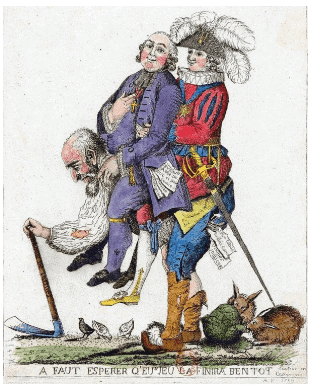The Outbreak of the Revolution
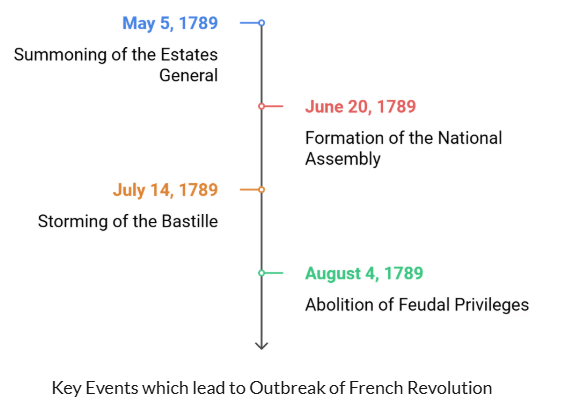
(a) Taxation:Faced with financial difficulties, Louis XVI needed to increase taxes but lacked the power to impose them unilaterally.
(b) Estates General
- Role: A political body representing three estates: First Estate (clergy), Second Estate (nobility), and Third Estate (commoners).
- Meeting Call: Louis XVI summoned the Estates General on May 5, 1789, for the first time since 1614 to address the tax issue.
(c) Assembly Setup:First and Second Estates had 300 representatives each. Third Estate had 600 representatives, seated separately and at a disadvantage. Third Estate included prosperous and educated members, while peasants, artisans, and women were excluded but submitted grievances through letters.
(d) Voting Dispute:
- Traditional Voting: Each estate had one vote.
- Third Estate’s Demand: Voting by individual members, reflecting democratic principles as proposed by Rousseau.
- Outcome: Louis XVI rejected the proposal, leading the Third Estate to walk out.
(e) Formation of the National Assembly
- Declaration: On June 20, 1789, the Third Estate declared itself the National Assembly in the tennis court at Versailles.
- Objective: To draft a constitution limiting the monarch’s power.
- Leaders:Mirabeau: Noble, advocated for dismantling feudal privileges, gave influential speeches.
- Abbé Sieyès: Priest, authored the pamphlet "What is the Third Estate?
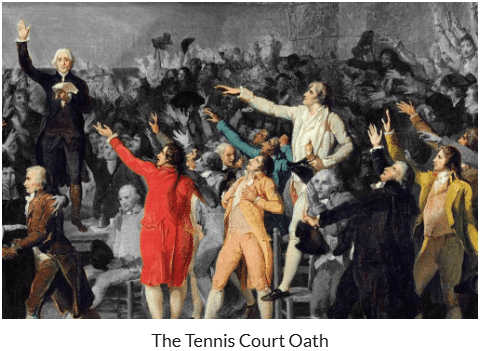
- Economic Crisis: Poor harvests and high bread prices led to public unrest in France.
- Bastille Storming: On July 14, 1789, the crowd attacked the Bastille, symbolizing the start of widespread revolt.
- Peasant Revolts: Rumors of brigands led to attacks on chateaux, looting, and burning of manorial records.
(g) Royal Response and Reforms:
- Recognition of National Assembly: Louis XVI accepted the National Assembly’s authority.
- August 4, 1789 Decree: Abolition of feudal obligations and privileges, including:
(i) Feudal System: Eliminated feudal dues and taxes
(ii) Clergy Privileges: Tithes abolished, Church lands confiscated.
(iii) Government Assets: Acquired assets worth at least 2 billion livres.








